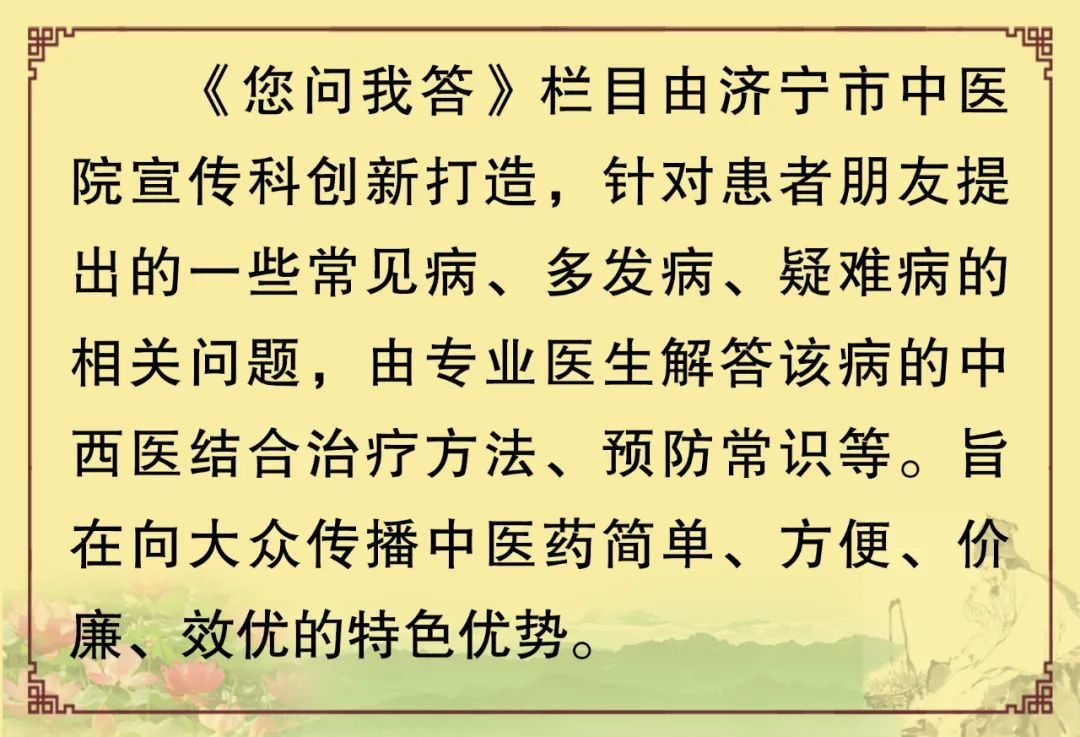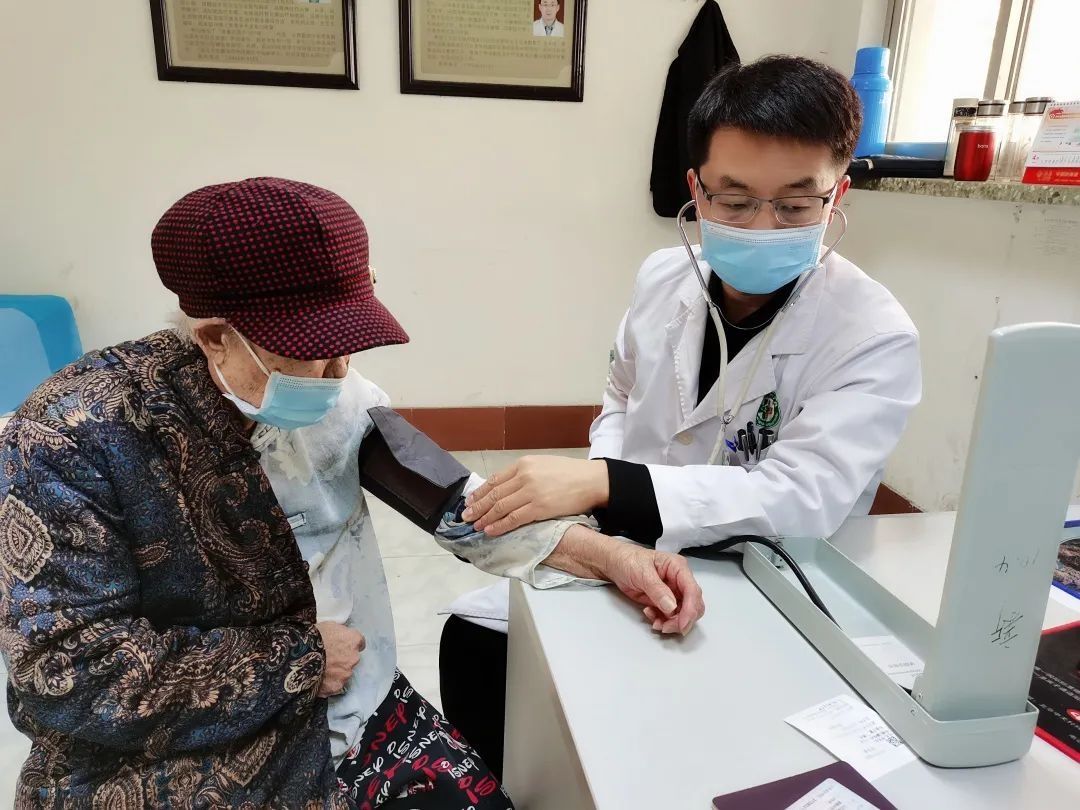
< span>Cases
Ms. Zhang, 38 years old, a company employee. In the morning, the mouth and eyes are skewed, the teeth are leaking, the eyes cannot be closed, and there is a dull pain behind the ears.
Ms. Zhang Q: Do I have a “cerebral infarction”? What causes it? How to treat?
Ruan Mingjun, Director of the First Department of Encephalopathy, Jining Hospital of Traditional Chinese Medicine, answered: According to the patient’s symptoms, it should be facial neuritis. Facial neuritis is also known as hanging wire wind, facial paralysis, facial paralysis, which is the paralysis of facial muscles. Mainly manifested as inability to frown, inability to close or insufficiency of eyes, photophobia, lacrimation, deviating corners of the mouth to the healthy side, air leakage from the diseased side when bulging the cheeks, water leakage from the diseased side when rinsing the mouth, drooling, food staying on the teeth of the diseased side between cheeks. Some patients have pain behind the ear.

Director Ruan Mingjun is in consultation (Picture and text irrelevant)
Treatment of Facial Neuritis (Western Medicine)
Facial neuritis is an acute non-purulent inflammation, and Western medicine prefers hormones, blood-activating and stasis-removing drugs to treat it. From the perspective of Western medicine, the causes of facial neuritis include: feeling cold, infection (otitis media, mastoiditis, labyrinthitis, mumps), tumor compression, head and face trauma and fractures . The most common cause is idiopathic facial paralysis after exposure to cold.
Treatment of Facial Neuritis (Traditional Chinese Medicine)
He has extensive experience in the treatment of facial neuritis. From the perspective of traditional Chinese medicine, the clinical syndromes of facial paralysis (facial neuritis) can be divided into pathogenic wind entering the collaterals, deficiency of both qi and blood, mutual resistance of phlegm and blood stasis, and internal movement of liver wind. The main reasons are as follows:
1. Due to wind-cold, wind-heat, damp turbidity and obstruction of the face and collaterals, the flow of meridians and qi becomes abnormal, and the Disharmony of blood, lack of nourishment of tendons and meridians can lead to facial paralysis;
2. Insufficient qi and blood, emptiness of the veins, wind pathogens entering the central meridians, obstruction of qi and blood, and dystrophy of muscles and tendons, resulting in facial paralysis;
2. p>
3. Addicted to alcohol, fat and sweet, the spleen loses its healthy function, accumulates dampness and produces phlegm, phlegm moves and generates wind, wind and phlegm moves through the meridians, qi and blood are blocked, the channels and tunnels are blocked, the qi cannot move, and the blood cannot be moistened. Facial paralysis;
4. The yin does not converge on the yang, and the liver yang is hyperactive, and the liver yang is in the wind, which runs up the face and damages the yangming meridian, resulting in facial paralysis.
Traditional Chinese medicine treatment is mainly based on syndrome differentiation of oral Chinese medicine and acupuncture physiotherapy to achieve the effect of treating both the symptoms and the symptoms.
1. Diseases enter the interior for a long time, and the viscera and meridians are damaged. Qianzheng San is used to dispel wind, resolve phlegm and stop spasm, and is used for people with good constitution, severe wind pathogens and no internal heat in the meridians of the wind; , the mouth and eyes are skewed, mainly used for yin deficiency and blood that does not nourish tendons, and wind-heat is worse;
Notes
1. Usually, pay attention to physical activities, enhance physical fitness, and avoid catching a cold.
2. Pay attention to rest, ensure adequate sleep, watch less TV and computers, and avoid all kinds of mental stimulation and excessive fatigue.
3. Eat less greasy and indigestible food. Eat more vegetables and fruits to maintain adequate vitamin intake.
4. Be careful not to let the wind blow directly on your head and face after taking a car, enjoying the cool outdoors, bathing, or drinking, especially for the elderly and infirm.
Expert Profile
Ruan Mingjun
Ruan Mingjun: Deputy Chief Physician, Master, Director of the First Department of Encephalopathy, Jining Hospital of Traditional Chinese Medicine.
Good at diseases:Integrated traditional Chinese and Western medicine in the treatment of stroke (acute cerebral infarction, cerebral hemorrhage, etc. period and recovery period), transient ischemic attack, facial neuritis, herpes zoster, hypertension, Parkinson’s disease, Guillain-Barre syndrome, myasthenia gravis, multiple sclerosis, central nervous system infection, dementia , epilepsy, peripheral nerve disease, experienced in the treatment of dizziness, headache, insomnia, dreaminess and forgetfulness.
Personal profile: Deputy chief physician, master, director of the First Department of Encephalopathy, Jining Hospital of Traditional Chinese Medicine. Member of the Standing Committee of the First Sleep Medicine Professional Committee of the Shandong Gerontology Association, member of the Encephalopathy Professional Committee of the Shandong Provincial Association of Traditional Chinese Medicine, member of the Schizophrenia Professional Committee of the Shandong Provincial Association of Traditional Chinese Medicine, member of the Hypertension Committee of the Traditional Chinese Medicine Physician Branch of the Shandong Medical Association, Shandong Province Member of the Sleep Disorders Professional Committee of the Pain Research Association, member of the Neurology Professional Committee of the Shandong Association of Integrative Medicine, and vice chairman of the Encephalopathy Professional Committee of the Jining Traditional Chinese Medicine Association.
Consultation time: Wednesday, Sunday all day
Health consultation: 0537- 6551952
Information provided by: Ruan Mingjun of the First Department of Encephalopathy
Editor in charge: Wang Bihui